Monasteries
In the Middle Ages, monasteries were communities of monks or nuns that lived together in buildings mostly outside the main towns. They dedicated themselves entirely to prayer, work, and studying. Characterized by their gigantic libraries, monasteries were important centers for education, civilization, and overall knowledge.

Please note that education was a privilege in Medieval Europe and only a few could afford it. Monasteries, however, were where you would find the most organized and effective schools. Their scholars produced many books and also preserved ancient texts, so they greatly enriched our knowledge of the Middle Ages as well as more ancient times.
Let's build our own library in Biblios!
Game Info
Biblios is a game best played with 2 to 4 players for ages 8 and up by designer Steve Finn. It was illustrated by Steve Finn himself and another great artist, David Palumbo, who also illustrated Magic: The Gathering and Dungeons & Dragons. Only greatness could come from their partnership!
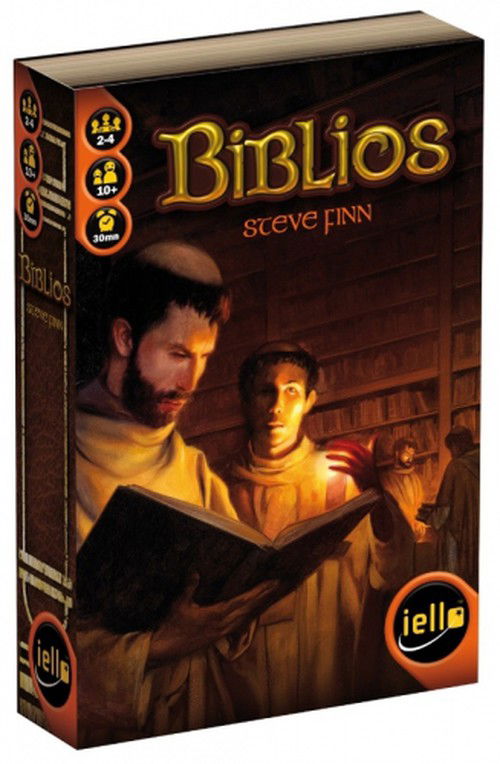
Biblios was released in 2007 by IELLO and "still" hasn't been released worldwide. Thankfully, you can play it regardless of which language you speak, and it is pretty cheap even if you have to import it. Its mechanics are: hand management, set collection, auction/bidding, pushing your luck, closed drafting, and commodity speculation.
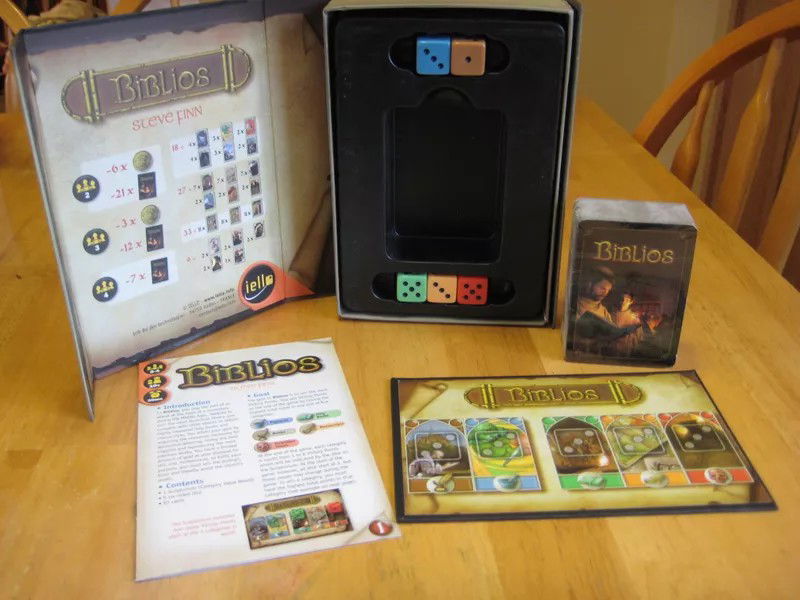
In 2008 and 2009, Biblios was nominated for the title of Best Card Game by Golden Geek, and, in 2011, it got second place at the *À la Carte - Fairplay's Annual Card Game Award.
Let's dive into it!
The Game
In Biblios, you'll be an abbot at the head of a monastery, during the Middle Ages. Seeking to own the most illustrious library, you'll compete with other abbots to get the highly treasured holy books, transcripts, and forbidden tomes.
You'll meet your goal by getting the resources you need and hiring the best monks. However, you have a limited budget. Furthermore, you must keep a good relationship with the bishop, and your influence over them could make your library a lot more valuable.
That's our setting!
Early on, as abbots, we only need to build the best library of all. However, we have absolutely nothing, we'll start from scratch, and, to add value to our library, we need:
The only thing we know is how much a library that meets all of these requisites is worth. This information is public: you can access it in the Scriptorium.
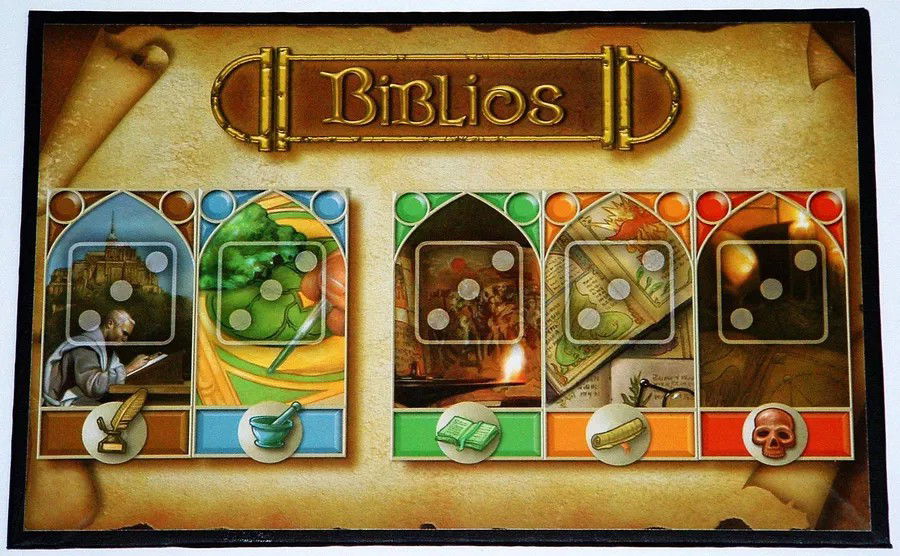
At the start of the game, all dice start at 3, but these values may change during the
game.
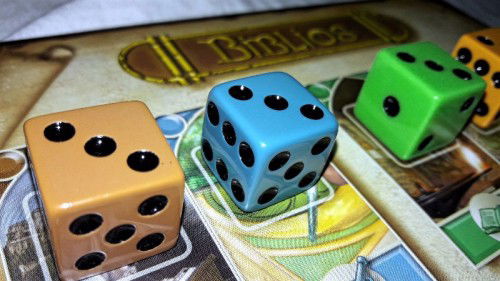
To start, we need to collect what we can, and these resources will cost money - which we don't have. So, we'll try to solve these issues in the first phase of the game.
This first phase is called the Gift Phase. We'll get free items, but not at random. You'll draw from the card pile according to how many players are playing plus one. So, if you're playing with 3 other players, you'll get 5 cards. But, please note that you can get a card, review it, and not show it to anyone to then see what you'll do with it before you get another. Your options will be:
If you decide to keep it, please note that these cards may give you money, monks, pigments, holy books, manuscripts, forbidden tomes, and church cards. These church cards indicate that the bishop is honoring you with a visit, and thus will let you manipulate the dice on the Scriptorium. That's where you can start building your strategy! Pick the card that interests you the most. But be careful: you can only keep one card to yourself on your turn, so pick them wisely.
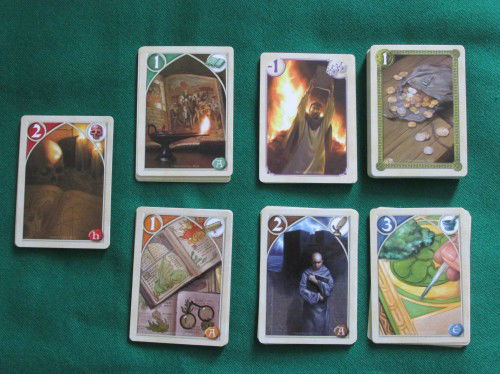
The cards that go to the public space will be put face up below the Scriptorium. The ones that go to the second phase, the auction, will be to the right of the Scriptorium.
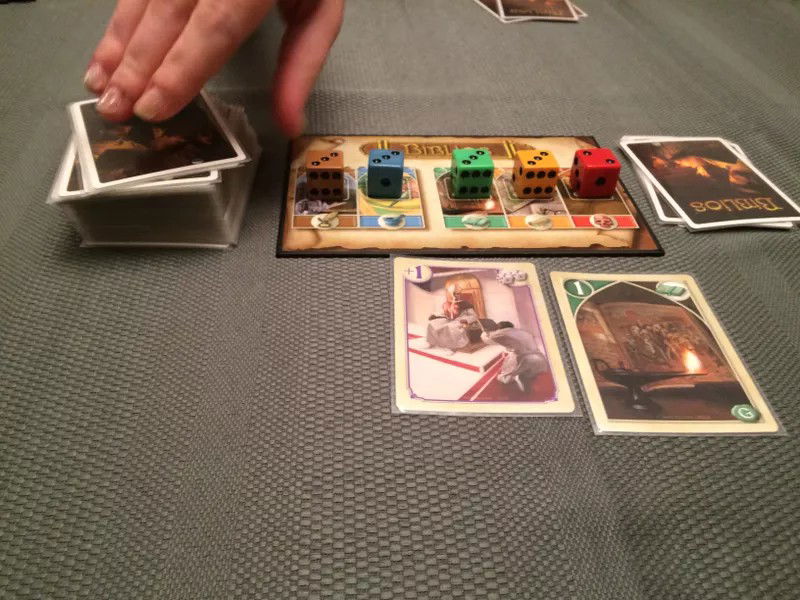
After you get enough cards (the number of players + 1) and pick what you want to do with each one, the other players, from left to right, pick a card in the public area to keep to themselves. Please note that now all have 1 card each: you, the other players, and the auction pile (for the second phase). Then, pass your turn to the next player. All players must repeat this process until the card pile is empty.
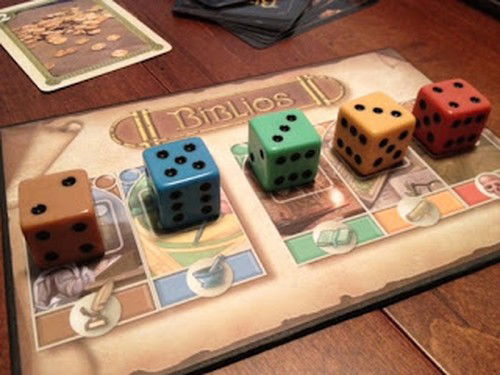
Then the second phase starts, the auction phase. The player who has priority gets a card in the auction pile, puts it face up at the center of the board, and the player to their left starts bidding in the following way:
To sum up: in this phase, when a card is turned face up, players will bid, and the highest bidder takes the prize. You'll need money to draw other types of cards, and, in this phase, you'll get money by "giving up" item cards that you don't want.
The game carries on until the last card is auctioned. These are the phases of the game!
End of the Game
The end of the game is triggered exactly when the last card of the second phase, or the auction phase, is sold. Then you just need to evaluate your archive!
All players show their cards and count their totals in all 5 categories:
The player with the highest number of points in a given category wins the victory points for that category and takes the corresponding die from the Scriptorium and places it in front of themselves. You'll repeat this process for all 5 categories. Whoever has more points after counting all the dice wins. It's that simple!
If two players are tied in a category, the player with the card in that category closest to the letter “A” (in the alphabetical order) wins the category (all cards have letters exactly because of this situation).
If two or more players have the same total on their dice, the player with the most
gold wins the game. If there is still a tie, the player who won the monk category is the winner.
Strategies and Tips
Biblios is about strategy, plain and simple. One of the most critical moments in the first phase is deciding which card you'll keep. Consider keeping a card that gives you a good amount of money to prepare for the second phase, or a card in one of the 5 categories with a good number. The golden rule is: if the number on the card is low, send it to the public space to force your opponents to keep cards with smaller values.
If the value on a card isn't that low or that high, send it to the auction pile. Could this go wrong? Yeah, you may pick a card for yourself and then see a better one later, but that's part of the game. Luck is a factor, but keep in mind you can mitigate it.
In this case, you can use a church card. It is great and lets you manipulate one or more dice by 1 or 2, either increasing or decreasing their value. It is really powerful when you consider the numbers go from 1 to 6. The values of the categories vary a lot during the game.
Here's another strategy: pay attention to your opponents. Try to memorize the categories they picked in the public space and take advantage of the bishop's visit to decrease their values. This is always a good strategy, and is often necessary.
You'll rarely win more than two or three categories, so I strongly suggest you focus on just a few and try, at the same time, to add value to the dice on the Scriptorium. If you try to get all 5 categories, you might even collect enough cards for all of them, but you'll only be able to get a few points on them. They won't be enough to win that category at the end of the game.
In the second phase (or the auction phase), if you don't have a lot of money, I strongly recommend you pick, among all the categories in your hand, the ones you know you won't win. Then, swap them for money whenever you can. Trust me, don't get attached to them and go after money instead - great cards for other categories will come along, and you might need to bid a lot of money for them.
Money is truly what makes the second phase go around, so get it and spend it wisely on the two or three categories you truly think you can win. Use it in moderation - if there is a tie, money will be one of the tiebreakers.
Follow these tips, build the best archive, and win Biblios!
Unboxing, Rules, and Gameplay Videos
Check out this unboxing:
Learn the rules:
Watch some gameplay:
Teaching Moments
If you would like to learn more about strategy and decision-making and practice these skills, Biblios is your game!
The entire game is highly strategic, and you'll have to make lots of decisions all the time. You'll have to pick the card you'll keep, and the ones you'll send to the public space or the auction, and everything has a consequence. One bad choice might just make you lose a valuable category or money card to the public space. You'll truly have to consider your options.
For instance, you might have to take a few chances and send a good card to the auction if you believe you can buy it later on, but that is definitely a risk and demands some planning. You'll also need time to learn this strategy, but it is quite rewarding. More specifically, waiting for that card that is in the auction and finally getting it is quite rewarding.
Choosing which categories you want to keep and which ones you'll give it up also involves a lot of focus and will make everything a bit more exciting. The choices you'll need to make in Biblios make it quite exciting.
Play with your friends and family and keep reminding them of the consequences of their choices. They'll eventually learn and be able to reflect on these teachings every day - and their decision-making skills will improve.
Biblios is a lot of fun and is a lesson in strategy and decision-making!
I strongly recommend Biblios to your collection!!!









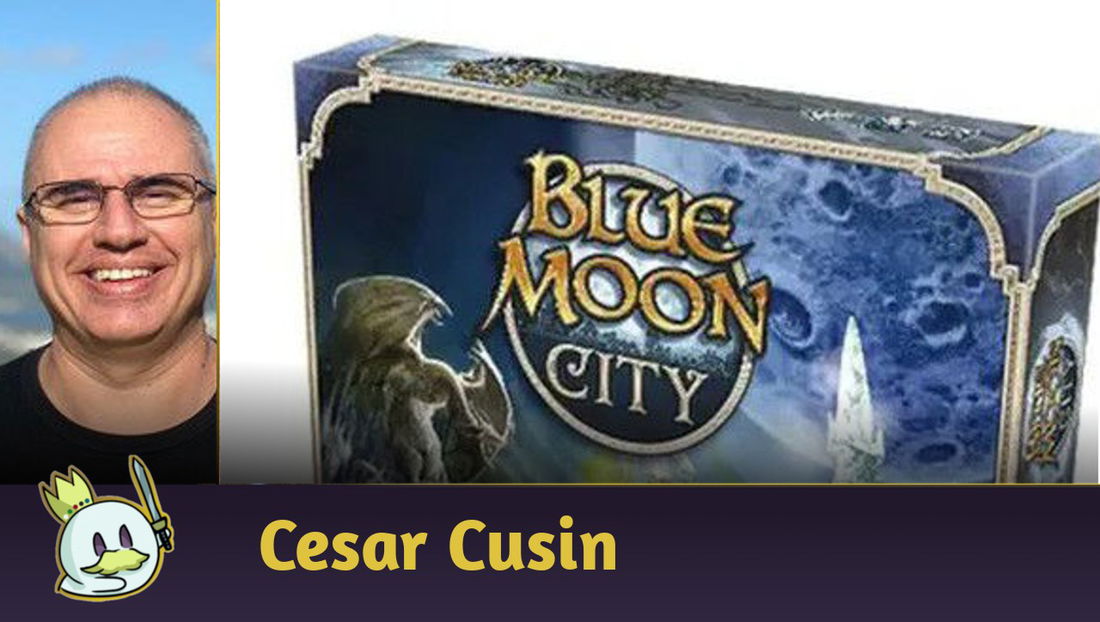
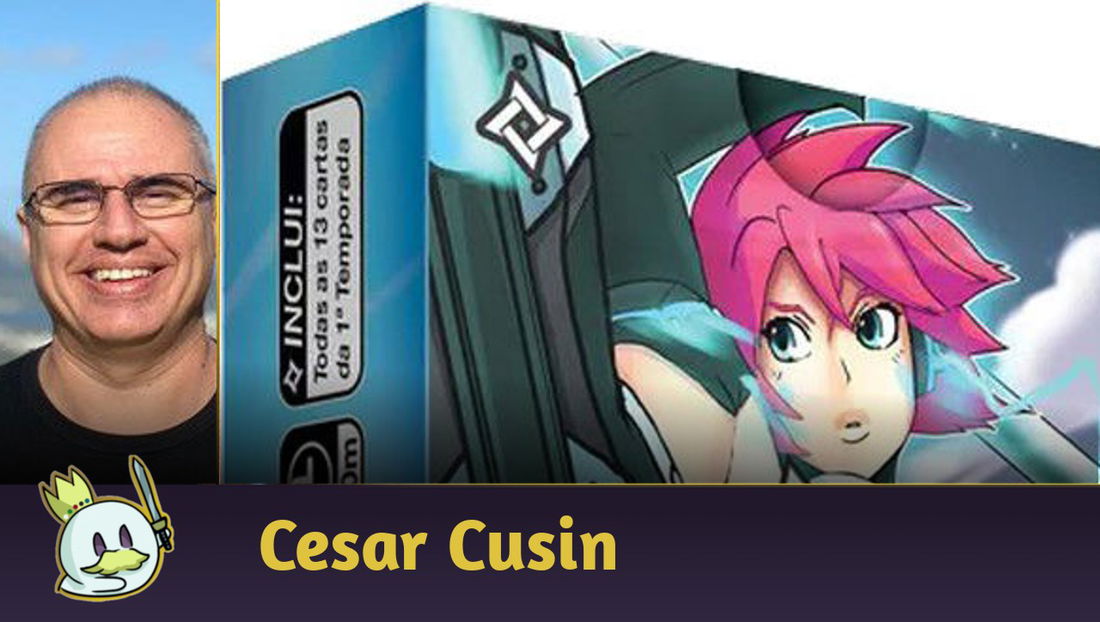



— コメント 0
, 反応 1
最初にコメントする